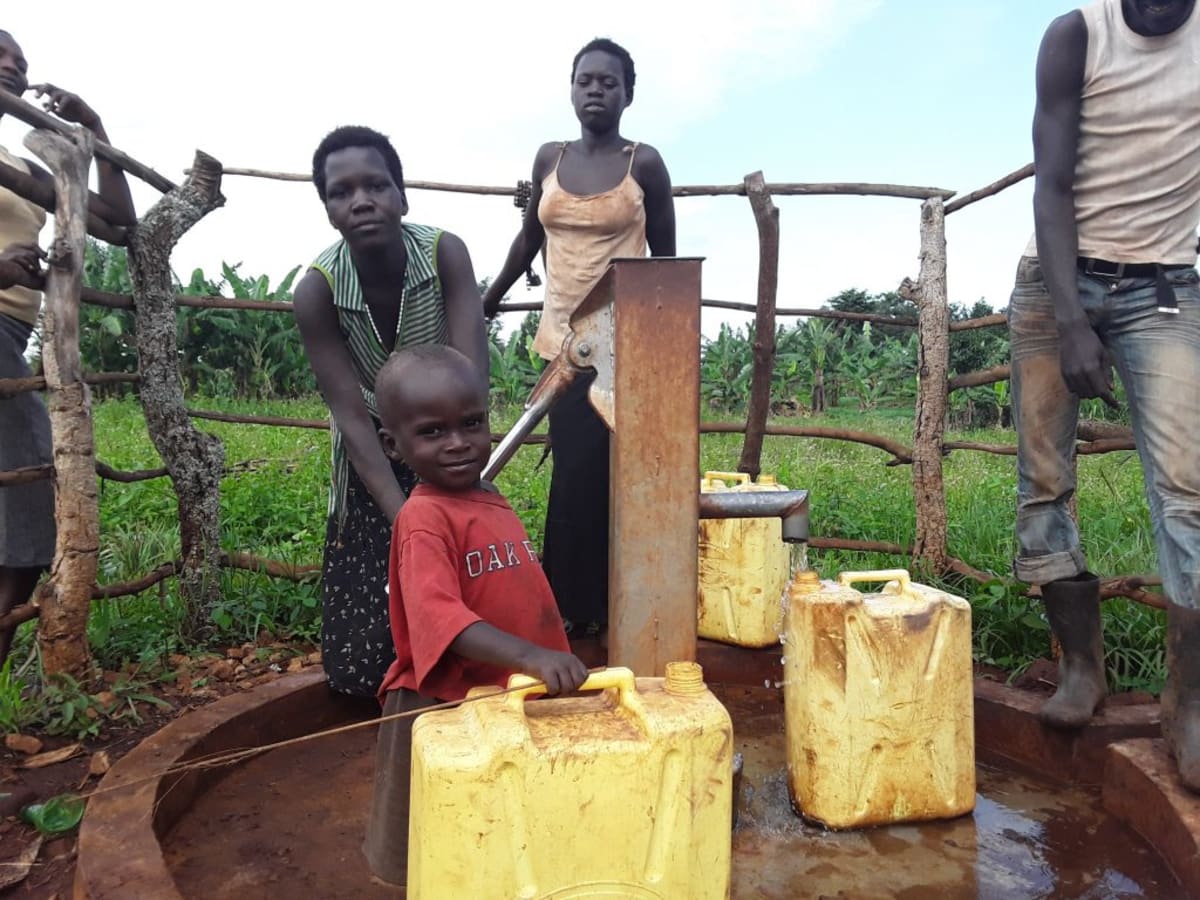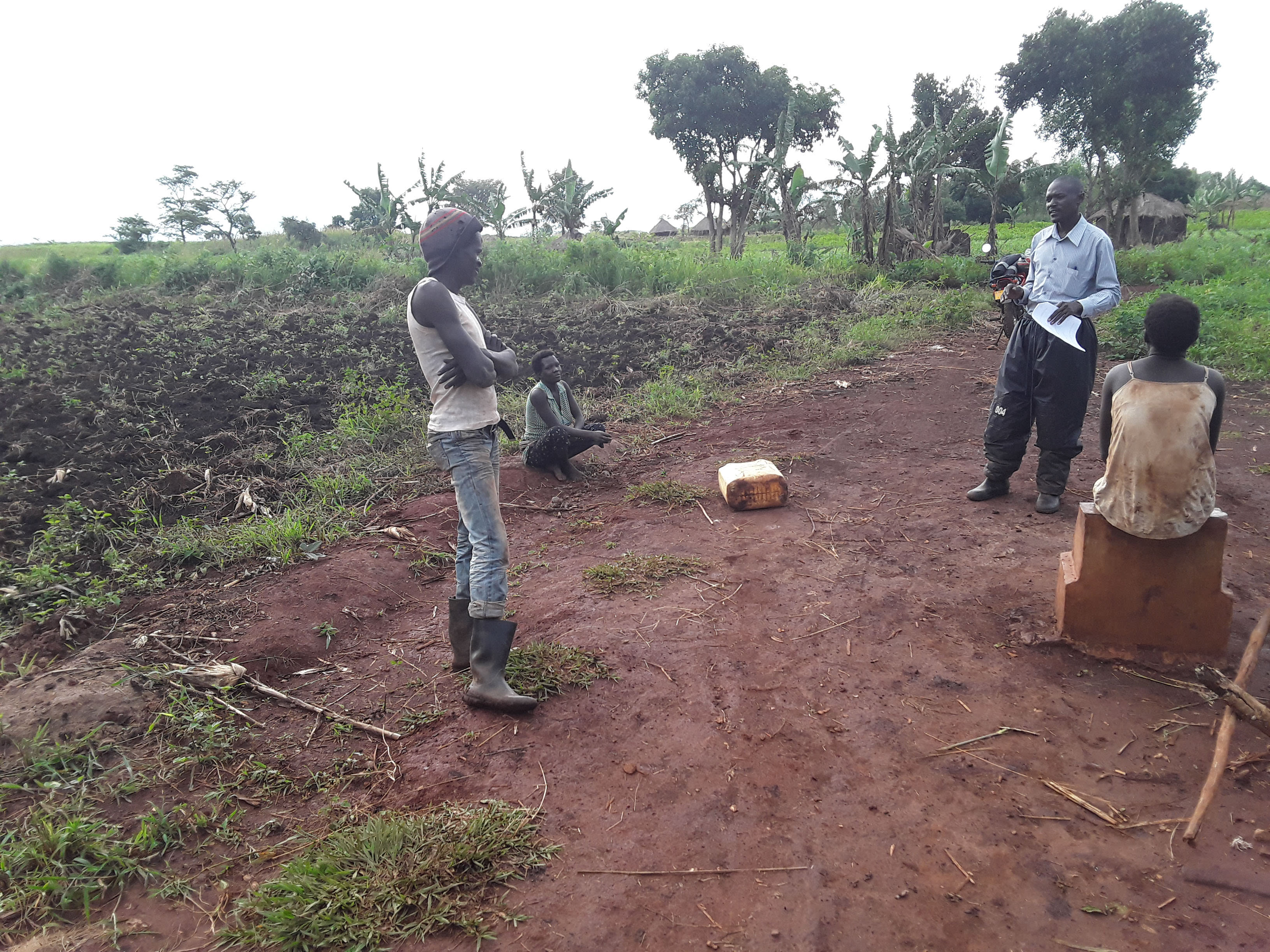Bunyama is located in Kyankende Parish, Kiryandongo sub-County of Kiryandongo District.
Bunyama Community is full of peasant farmers who wake up as early as 6AM to work on their farms. After work, women and children return home and men venture to the local trading center to drink with friends. When there are crops to sell, women travel to the market to trade and earn money.
We interviewed Kabuubi Deogratious, a 51-year-old father to 14 children. He moved to this village 25 years ago because of constant land wars in his ancestral village of Mirya of Masindi District. He informed us that his children and wife work in his maize gardens in order to sell the crops at the end of every season. During the interview, he lamented about the broken water source which was constructed by the local government, sharing that it is the main source of water for him and numerous neighbors. "This water is visibly turbid and contaminated," he observed.
Water Situation
We have already partnered with this village to construct a water source at one side, and this water source was named "Bunyama B". This came at a time when the village already had access to a protected water source constructed by the local government. That older water source constructed by the local government broke down many months before, having sunk into soft soils (as shown in the pictures below) forcing the community to collect spillover water from the pump base's cracks, which is very dangerous to their health. Over time, the entire water column became contaminated by surface runoff water, making it moot to only repair the pump.
People suffer from typhoid and diarrhea after drinking this water, especially the children.
Plans: Hygiene and Sanitation Training
The main objectives are the use of latrines and observing proper hygiene practices, since these goals are inherently connected to the provision of clean water. Open defecation, water storage in unclean containers and the absence of hand-washing are all possible contaminants of a household water supply. Each participating village must achieve Open Defecation Free status (defined by one latrine per household), prior to the pump installation for a shallow hand-dug well.
The CDO will continue to encourage each household to build an ideal homestead that includes: a latrine, hand-washing facility, a separate structure for animals, rubbish pit and drying rack for dishes.
We also implement the Community Led Total Sanitation (CLTS) approach with each of our village partners. This aims to improve the sanitation and hygiene practices and behaviors of a village. During these sessions, village leaders naturally emerge and push the community to realize that current practices of individual households – particularly the practice of open defecation– are not only unhealthy, but affect the entire village. CLTS facilitates a process in which community members realize the negative consequences of their current water, sanitation and hygiene behaviors and are inspired to take action. Group interactions are frequent motivators for individual households to: build latrines, use the latrines and demand that other households do the same.
Plans: Hand-Dug Well
Oyenboth Scovia is the current community development officer (CDO) for Kiryandongo sub-county who recently informed Mwereza Julius, the village chairman, that we plan to partner with Bunyama again. We plan to construct a shallow hand-dug well to replace the old one that fell into disrepair. This community has pledged to excavate the hole and provide local construction materials like sand, aggregates, hardcore and bricks. They will also provide food and accommodation for the technician we shall send to work with them during this partnership.
There will be an intensive program to provide access to clean water and sanitation in this village. The community will participate in excavating and constructing the water source. In the meantime, the aim is that all households own an improved latrine. Many households do not use a latrine, but use the bush. Due to the practice of open defecation, feces are spread all over the village and thus contaminate open water sources. We want to ensure that the community is able to live a healthy life that is free of preventable waterborne diseases.
Actual well construction will take four to six weeks if there are no challenges. The well will be lined with bricks and sealing clay, and finished with a Consallen pump.
Thank You for partnering with us to get clean water to the people living in Bunyama!

 Protected Dug Well
Protected Dug Well
 Rehabilitation Project
Rehabilitation Project






















